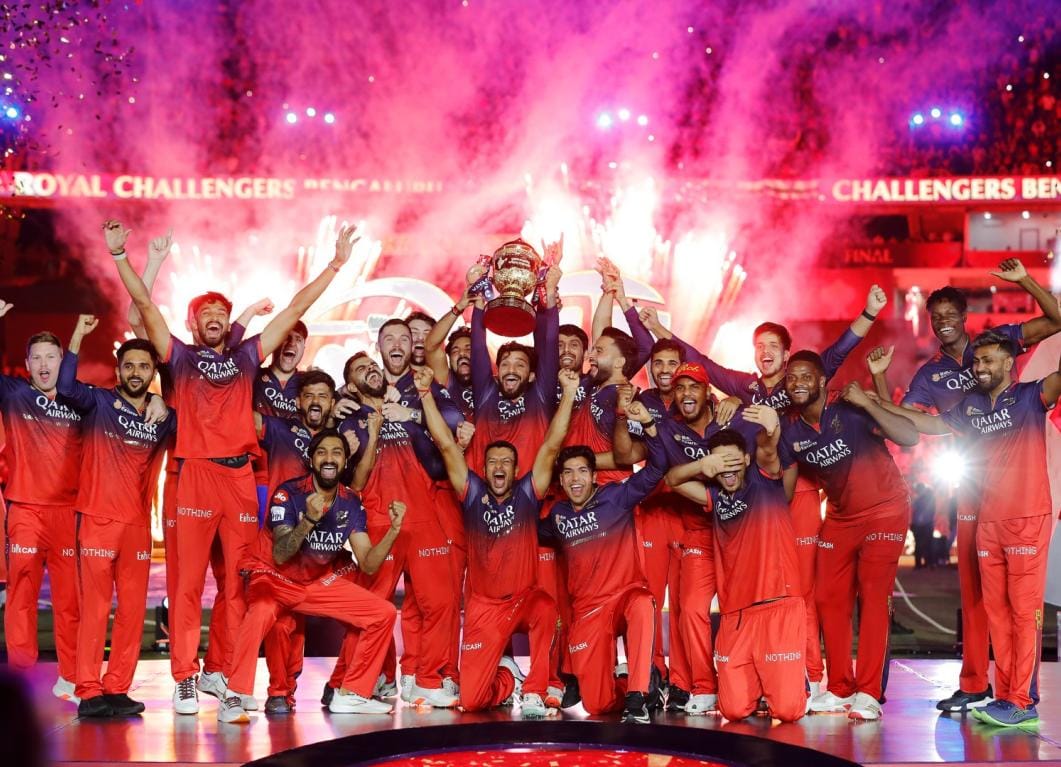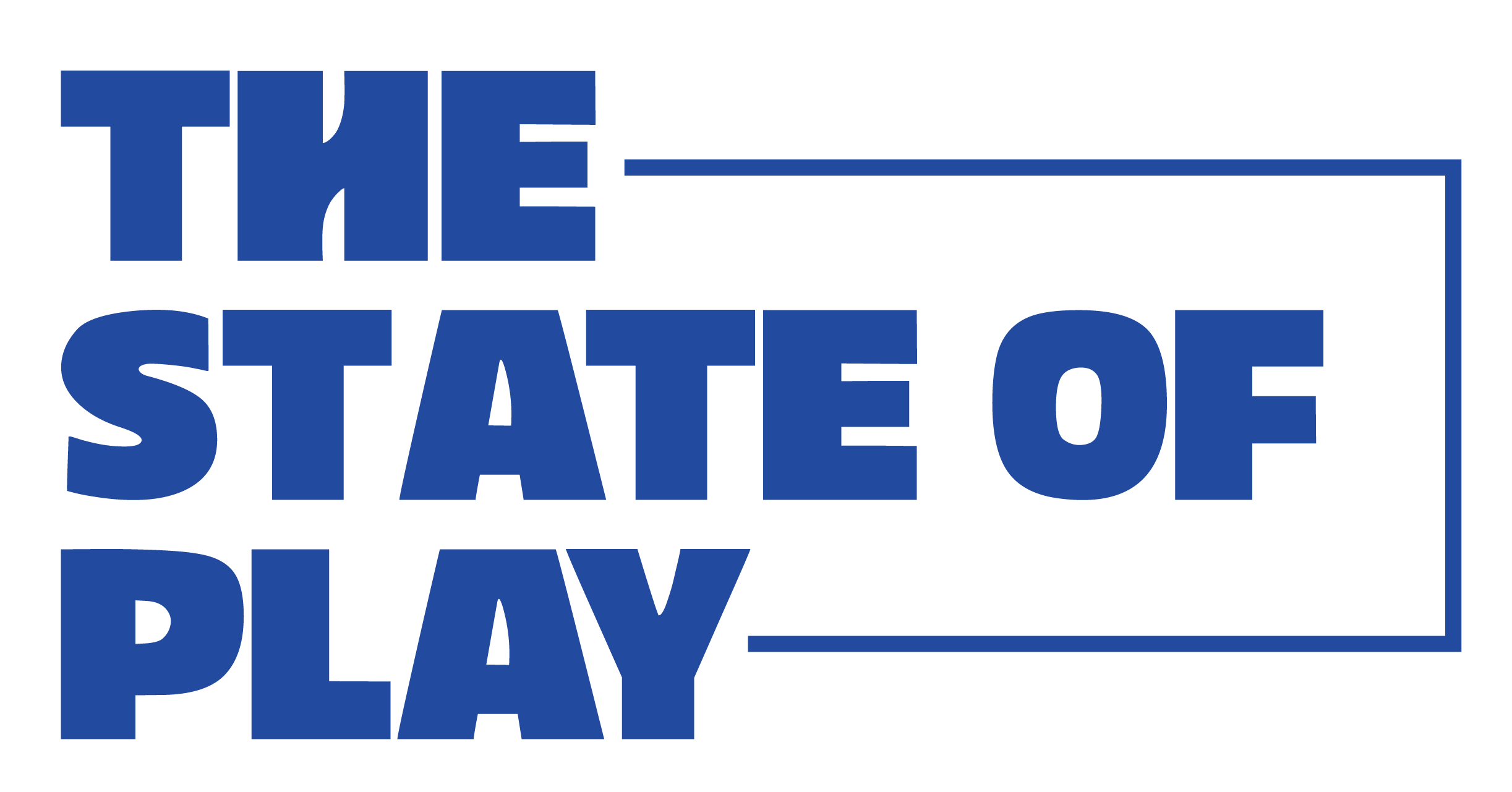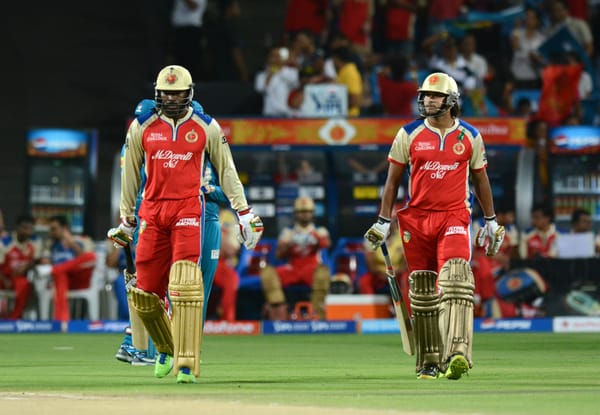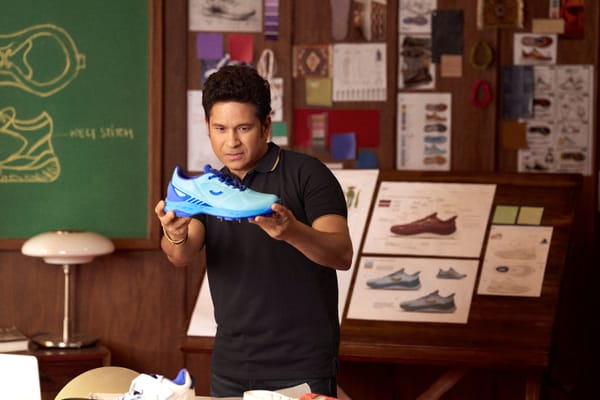Decoding the RCB sale hypothesis
As Diageo looks to cut costs and refocus its portfolio, the RCB valuation offers a glimpse of how global consumer giants are learning to treat sport as an asset class rather than a marketing indulgence.

When the Royal Challengers Bengaluru (RCB) finally won their maiden Indian Premier League (IPL) title on June 3, the afterglow felt overdue. Less than a week later, it was in the news for a different reason.
Bloomberg, citing people familiar with the matter, reported that Diageo Plc, the British alcobev company that owns RCB through its Indian arm, United Spirits Limited (USL), was entertaining offers for the franchise. The asking price: about $2 billion (~Rs 17,000 crore).
The timing was striking. RCB officials were in court that week seeking bail over the deadly crowd surge that marred celebrations of their maiden title win in Bengaluru. The leak shifted the conversation from the courtroom to the boardroom.
Diageo India moved quickly to clarify. In an exchange filing dated June 10, the company stated that “aforesaid media reports are speculative in nature and it is not pursuing any such discussions.” The statement was brief and procedural, but it did little to settle the matter.
Speculation swelled. JSW Sports (co-owner of the Delhi Capitals) was mentioned, followed by the Adani Group and even sovereign-capital names from Riyadh to Doha.
Praveen Someshwar, managing director and chief executive, Diageo India, set the cat among the pigeons when he told a TV channel mid-September that while RCB was an “exciting asset”, it had “nothing to do with our core business.”
A fortnight later, the same channel reported that Adar Poonawalla, chief executive of the Serum Institute of India, had expressed interest in buying the team. Poonawalla later wrote on X that “at the right valuation, @RCBTweets is a great team.” Former IPL commissioner Lalit Modi added to the swirl on social media, suggesting that Citi had been appointed as the banker. As the chatter resurfaced, Diageo India told exchanges on September 30 that it “does not respond to market speculation.”
Investment bankers, The State of Play spoke to, said the market was abuzz, but no mandate was visible. At the time of publishing, Diageo India did not respond to The State of Play's questionnaire.
If Diageo is testing sentiment, this is the moment that compresses sport, finance, and reputation into one decision. RCB has never been stronger on the field (men’s champions in 2025, women’s champions in 2024), IPL cash flows are stable, and Diageo’s shareholders are demanding discipline after a difficult few years. Whether a sale follows is secondary. The exercise is less about RCB itself than what it represents: sport in India, learning to measure value as rigorously as performance.





